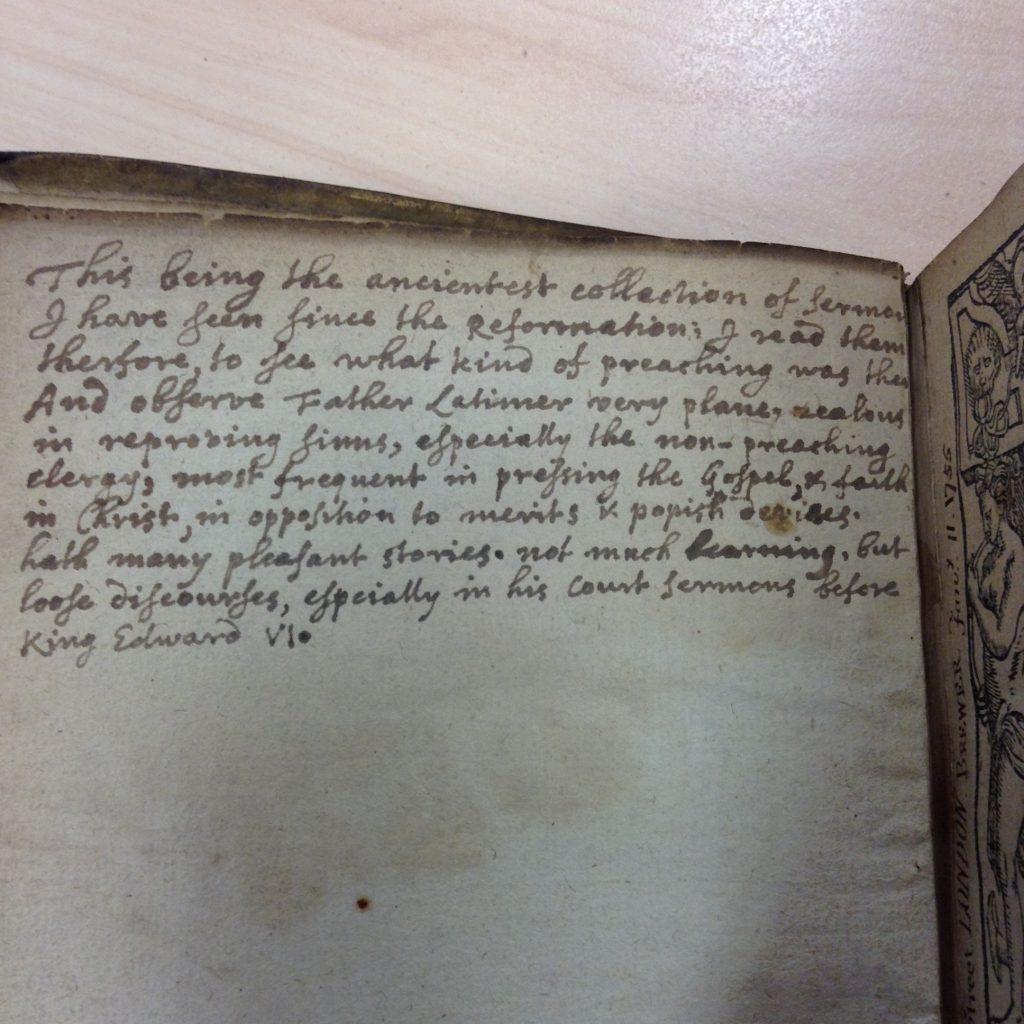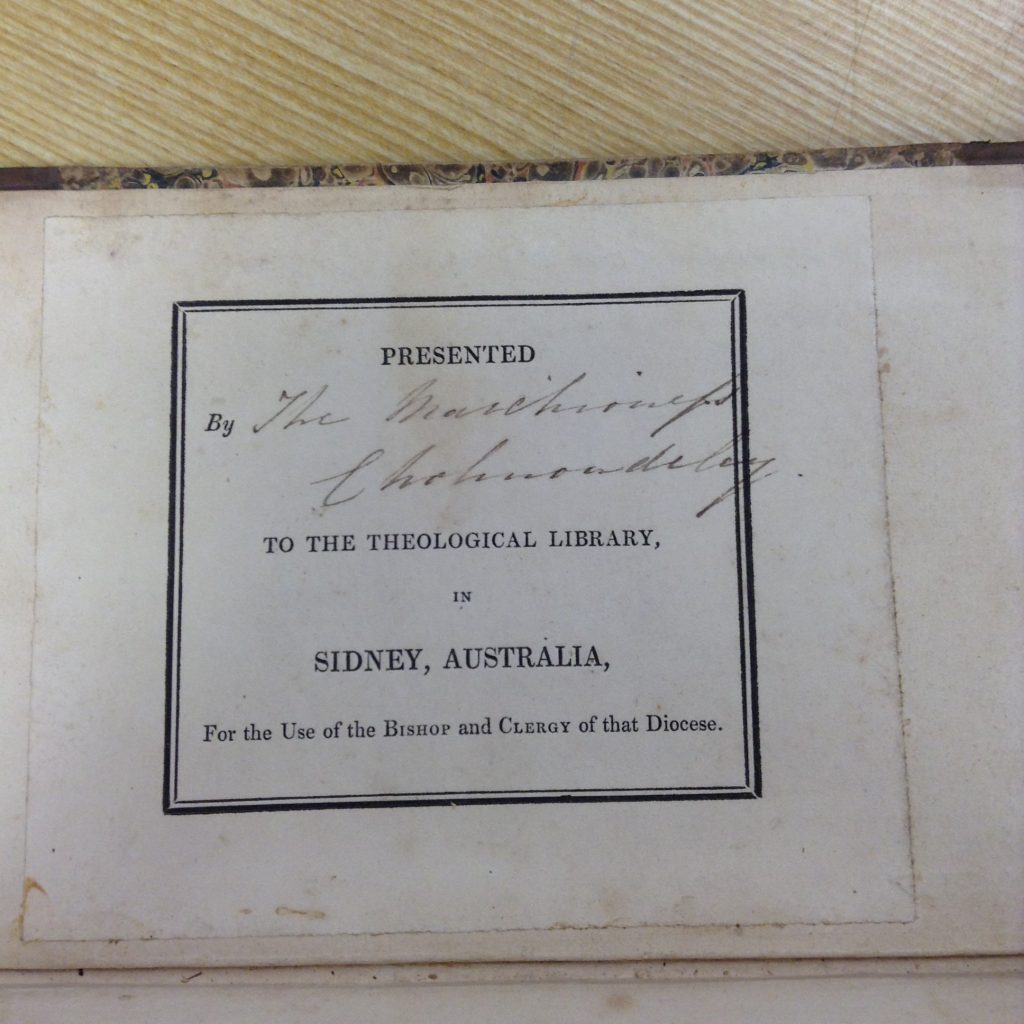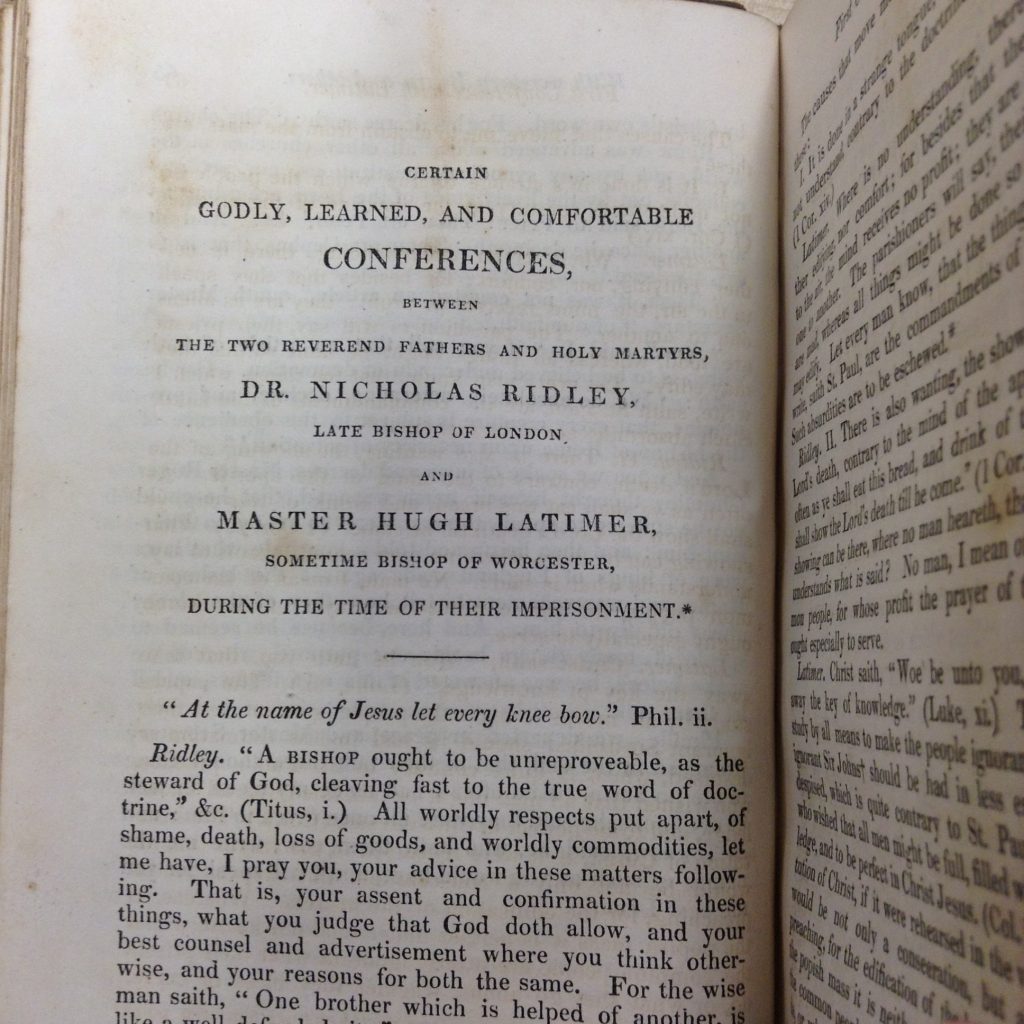The Anglican Reformers and martyrs Hugh Latimer and Nicholas Ridley went to their deaths at the stake in a public square outside Balliol College, Oxford on October 16th 1555, and are commemorated on this date in the Church of England and the Anglican Church of Australia.
Latimer, born in 1487, had been Bishop of Worcester and chaplain to King Edward VI, a Protestant monarch. Ridley was the Bishop of London and a supporter of Lady Jane Grey. In 1548 he assisted Thomas Cranmer in compiling the Book of Common Prayer. Queen Mary I, a staunch Catholic, ordered their imprisonment in the Tower of London and public execution.
The title page of Latimer’s sermons, published in London after his death and the end of the Catholic monarchy in England. They include sermons preached before Edward VI and sermons on the Lord’s prayer.
This volume belonged to a brewer named Thomas Jordan, of Leman Street, London, who wrote his name and the date Jan 11, 1755 on the inside margin of the title page. He may have been the one who had the pages trimmed so that the volume could be rebound in vellum. This is shown by the narrow margin between the top of the text and the edge of the paper. The inscription on the fly-leaf reads:
This being the ancientest collection of sermons I have seen since the Reformation. I read them therefore, to see what kind of preaching was then, and observe Father Latimer very plane, zealous in reproving sinns, especially the non-preaching clergy, most frequent in pressing the gospel of faith in Christ, in opposition to merits ; Popish devices, hath many pleasant stories, not much learning, but loose discourses, especially in his court sermons before King Edward VI.
The Library doesn’t hold an early edition of Ridley’s works, however there is an 1830 edition of his Treatises and Letters, published by the Religious Tract Society in London.
In 1836, Bishop W.G. Broughton asked his friend Rev. Edward Coleridge, a master at Eton College, to organise an appeal for books to be sent out to the colony for the use of the clergy there. This volume was one of these donations, from the Marchioness of Cholmondeley (pronounced chumly). A Marchioness is the wife of a Marquess, the second highest rank in the British peerage after a Duke. It is uncertain whether the book was donated by the wife of the second Marquess, George Horatio who was a Methodist, or his younger brother and heir William, a teetotal Quaker.
This work includes ‘A brief treatise upon the Lord’s Supper’, which deals with the highly contested doctrine of transubstantiation, and ‘Certain godly, learned and comfortable conferences between the two reverend Fathers and holy martyrs Dr Nicholas Ridley and Master Hugh Latimer’, recording dialogue on the Lord’s Supper during their joint imprisonment in the Tower of London.
Latimer’s famous exhortation to Ridley just before their execution, Play the man, Master Ridley; we shall this day light such a candle, by God’s grace, in England, as I trust shall never be put out was recorded by John Foxe in his martyrology Actes and Monuments. However, this quotation does not appear in the first edition of Actes and Monuments, leading some to suggest that it may have been invented by someone else who reported it to Foxe for later editions (Freeman, 1999, p. 42). Nevertheless, it embodies the courage of these two Reformers who were faithful unto death.
References: Encyclopædia Britannica Online, s. v. “Hugh Latimer”, accessed October 11, 2016, https://www.britannica.com/biography/Hugh-Latimer. Encyclopædia Britannica Online, s. v. “Nicholas Ridley”, accessed October 11, 2016, https://www.britannica.com/biography/Nicholas-Ridley. Freeman, Thomas. “Texts, Lies, and Microfilm: Reading and Misreading Foxe’s “Book of Martyrs”” The Sixteenth Century Journal 30, no. 1 (1999): 23-46.





